PLUME
Published by the Penguin Group
Penguin Group (USA) Inc., 375 Hudson Street,
New York, New York 10014, USA

USA | Canada | UK | Ireland | Australia | New Zealand | India | South Africa | China
Penguin Books Ltd, Registered Offices: 80 Strand, London WC2R 0RL, England
For more information about the Penguin Group visit penguin.com
First published in the United States of America by Hudson Street Press, a member of Penguin Group (USA) Inc., 2012
First Plume Printing 2013
Copyright Andrew B. Newberg and Mark Robert Waldman, 2012
All rights reserved. No part of this product may be reproduced, scanned, or distributed in any printed or electronic form without permission. Please do not participate in or encourage piracy of copyrighted materials in violation of the authors rights. Purchase only authorized editions.
Illustration credits: Mark Waldman (This derivative illustration has been digitally enhanced and modified).
 REGISTERED TRADEMARKMARCA REGISTRADA
REGISTERED TRADEMARKMARCA REGISTRADA
The Library of Congress has catalogued the Hudson Street Press edition as follows:
Newberg, Andrew B., 1966
Words can change your brain : 12 conversation strategies to build trust, resolve conflict, and increase intimacy / Andrew Newberg and Mark Robert Waldman.
p. cm.
Includes bibliographical references and index.
ISBN 978-1-101-58570-2
1. Interpersonal communication. 2. Language and emotions. 3. Psycholinguistics. 4. Neuropsychology. I. Waldman, Mark Robert. II. Title.
BF637.C45N454 2012
153.6dc23 2012005650
PUBLISHER'S NOTE
While the authors have made every effort to provide accurate telephone numbers, Internet addresses, and other contact information at the time of publication, neither the publisher nor the authors assume any responsibility for errors or for changes that occur after publication. Further, publisher does not have any control over and does not assume any responsibility for author or third-party Web sites or their content.
CONTENTS
AUTHORS NOTE
T he communication strategies weve developed and presented in this book have grown out of years of evidence-based research conducted by hundreds of neuroscientists and psychologists throughout the world. This book represents a new model for how the brain creates unique language systems that are designed to convey complex information to others. But neuroscience is often difficult to convey in simple language. Sometimes important information can be left out, and sometimes a hypothesis may read as though it were a fact. Furthermore, when it comes to the brain, a single millimeter of tissue can control many processes in addition to the ones we describe in this book. To counter these problems, and to provide the necessary substantiation for this new approach to communicating effectively with others, weve included extensive endnotes, which will also help guide you if you choose to delve more deeply into the neuroscience of empathy, cooperation, and trust.
PART 1
The Evidence
The Neuroscience of Communication, Consciousness, Cooperation, and Trust
C HAPTER 1
A New Way to Converse
W ithout language, we would find ourselves living in a state of emotional chaos. Our brain has given us the potential to communicate in extraordinary ways, and the ways we choose to use our words can improve the neural functioning of the brain. In fact, a single word has the power to influence the expression of genes that regulate physical and emotional stress.
If we do not continually exercise the brains language centers, we cripple our neurological ability to deal with the problems we encounter with each other. Language shapes our behavior, and each word we use is imbued with multitudes of personal meaning. The right words, spoken in the right way, can bring us love, money, and respect, while the wrong wordsor even the right words spoken in the wrong waycan lead a country to war. We must carefully orchestrate our speech if we want to achieve our goals and bring our dreams to fruition.
Although we are born with the gift of language, research shows that we are surprisingly unskilled when it comes to communicating with others. We often choose our words without thought, oblivious of the emotional effects they can have on others. We talk more than we need to. We listen poorly, without realizing it, and we often fail to pay attention to the subtle meanings conveyed by facial expressions, body gestures, and the tone and cadence of our voiceelements of communication that are often more important than the words we actually say.
These conversational shortcomings are not caused by poor education. Rather they are largely related to an underdeveloped brain, for the areas that govern social awareness, empathy, and related language skills are not fully operational until were about thirty years old. Despite this neurological handicap, scientific research shows that anyoneyoung or oldcan exercise the language and social-awareness centers of the brain in ways that will enhance their capacity to communicate more effectively with others.
To date weve identified and documented twelve strategies that will enhance the dynamics of any conversation, even with strangers. They can stimulate deep empathy and trust in the listeners brain, and they can be used to interrupt negative thought patterns that, if left unchecked, can actually damage your brains emotional-regulation circuits.
The Twelve Strategies of Compassionate Communication
1. Relax
2. Stay present
3. Cultivate inner silence
4. Increase positivity
5. Reflect on your deepest values
6. Access a pleasant memory
7. Observe nonverbal cues
8. Express appreciation
9. Speak warmly
10. Speak slowly
11. Speak briefly
12. Listen deeply
In this book, well show you how to use these strategies to rapidly develop deep, long-lasting relationships at home and at work. Youll learn how to interrupt unconscious inner speech that generates anxiety, fear, and doubt. Youll build more intimate relationships in your personal life, and youll build more successful relationships with your clients, employees, and colleagues. Youll create fun, productive collaborations at work; youll enhance your management skills; and this will translate into more income and sales.
Youll learn how to recognize when another person is lying, and youll discover how to use your intuition to know what others are thinking before they even speak. Youll even discover how silence can strengthen the power of your communication skills.
Well also show you a little secret that will change your facial expression in ways that will inspire trust in others. You can change the rate of your speech to influence how the other person feels, and youll be able to use your body language to convey more meaning than words can ever capture.
If you practice these strategies for just a few minutes each day, youll think more clearly, youll enhance your creativity, and youll generate more authentic dialogues with others. You can even eliminate conflicts before they begin.
Our brain-scan studies, when combined with the latest research in the fields of language, communication, and mindfulness, demonstrate that these strategies can improve memory and cognition while simultaneously lowering stress, anxiety, and irritabilityfactors that are known to undermine the effectiveness of any conversation or social interaction. As you practice these strategies on a daily basis, your self-confidence and satisfaction in life will grow in ways that can be measured in the laboratory and felt at home.

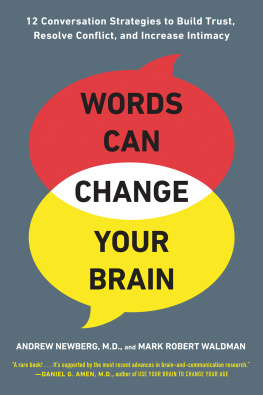
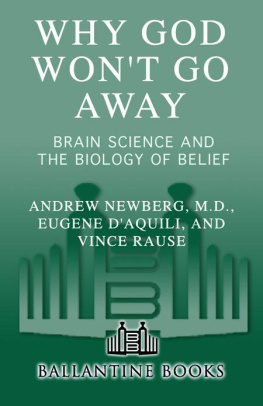

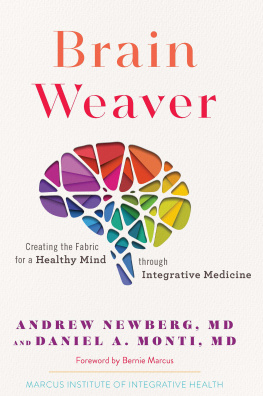

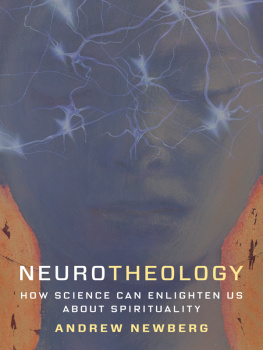
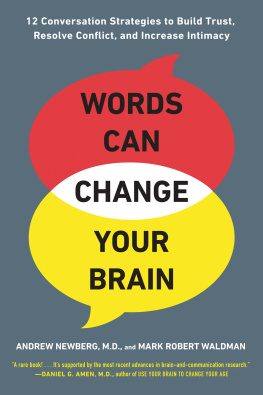

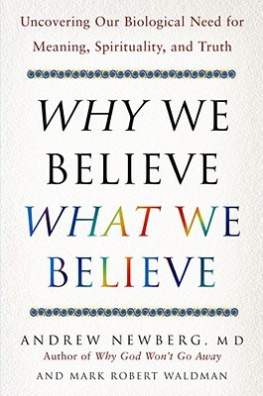
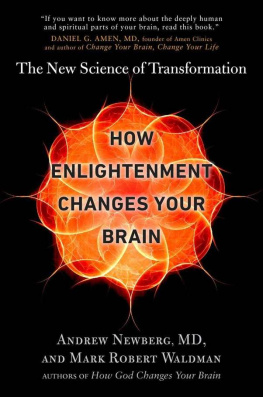
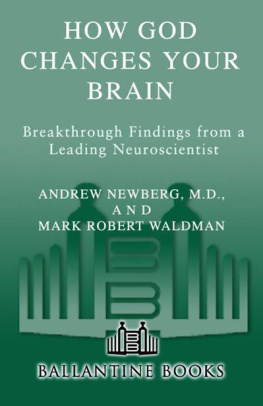
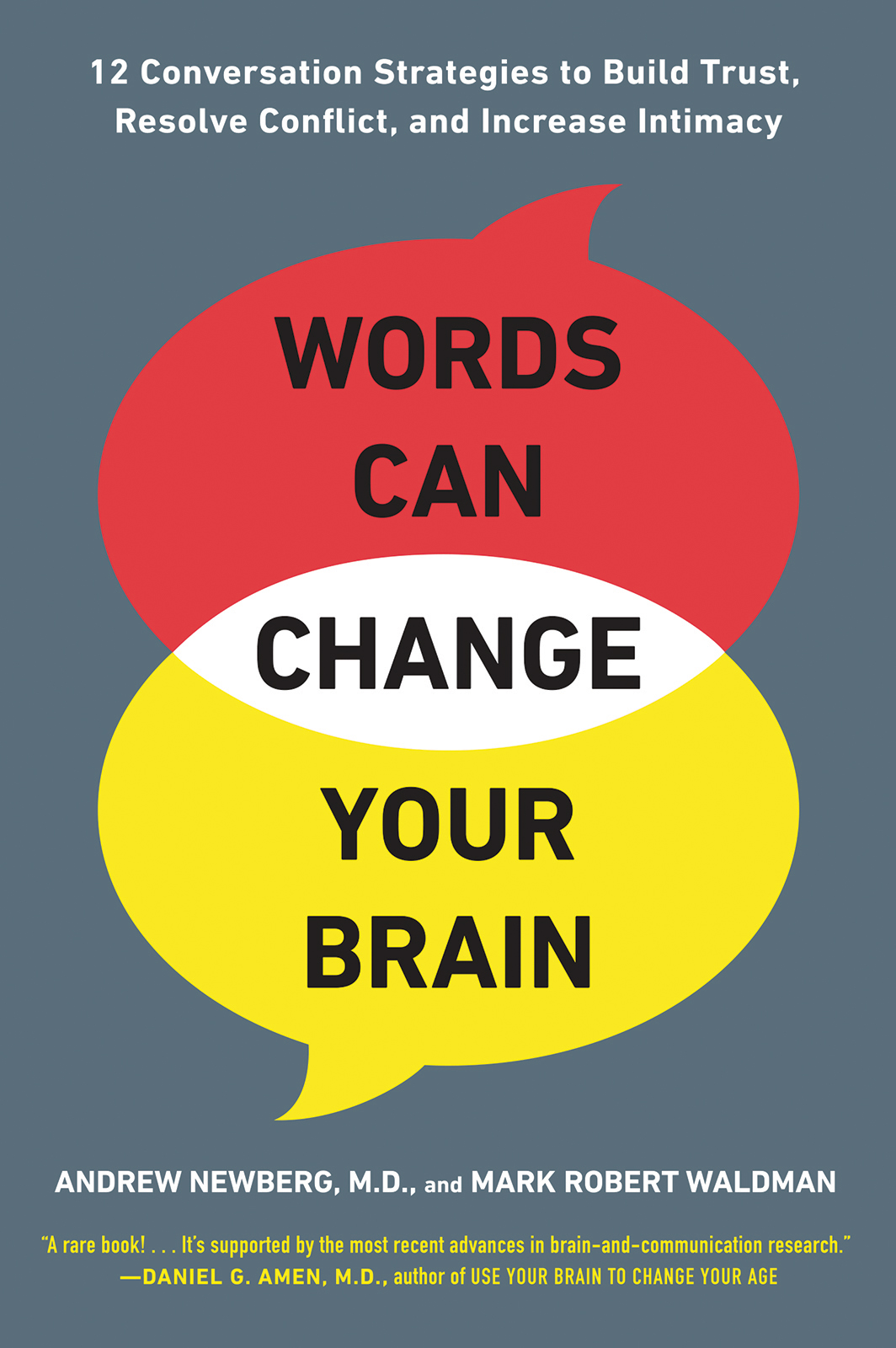


 REGISTERED TRADEMARKMARCA REGISTRADA
REGISTERED TRADEMARKMARCA REGISTRADA